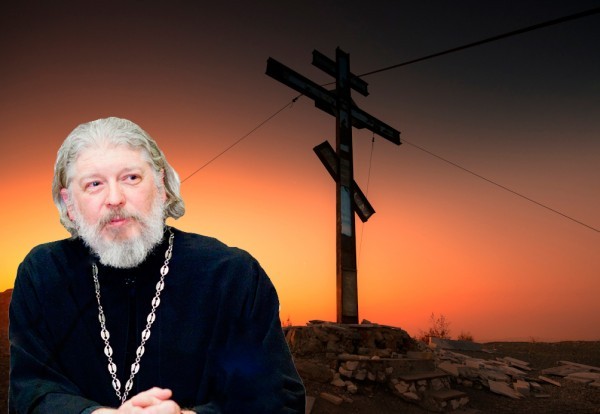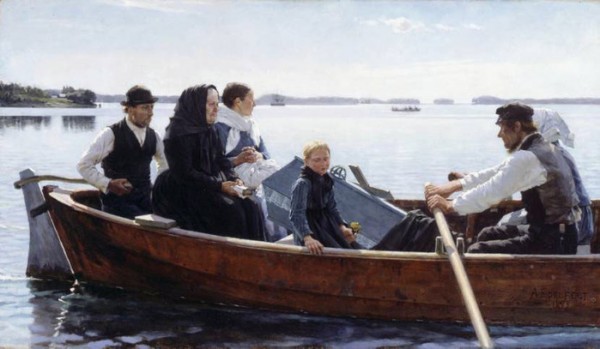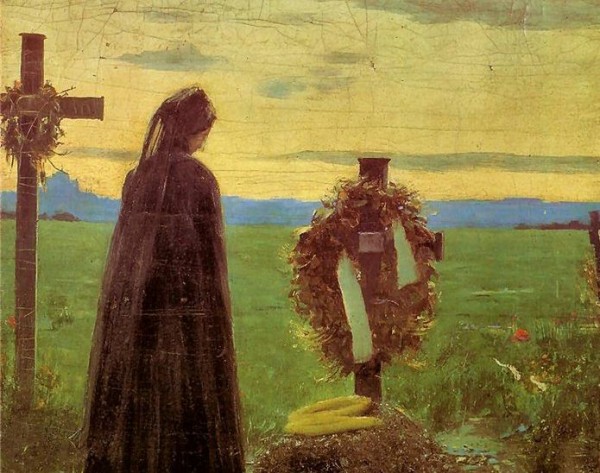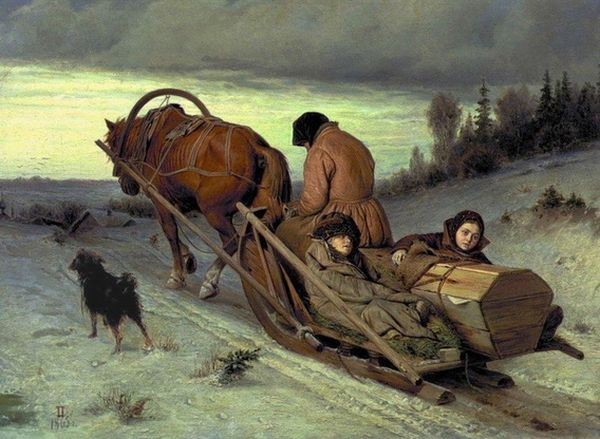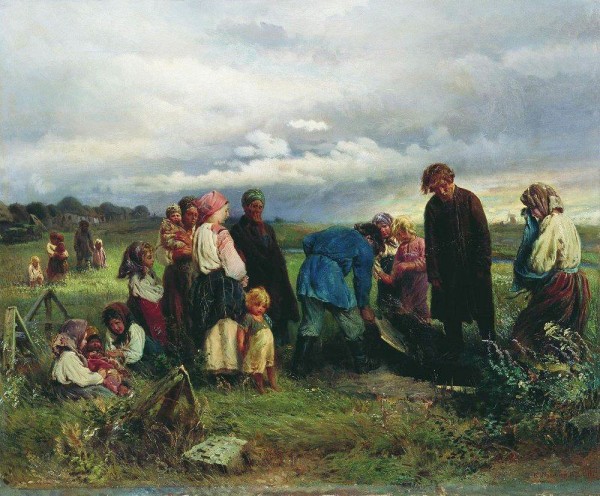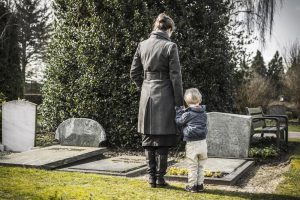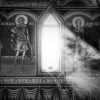How should a person live if he knows that death exists? If he knows that his close ones and he himself will someday die? Indeed it can happen at any moment…
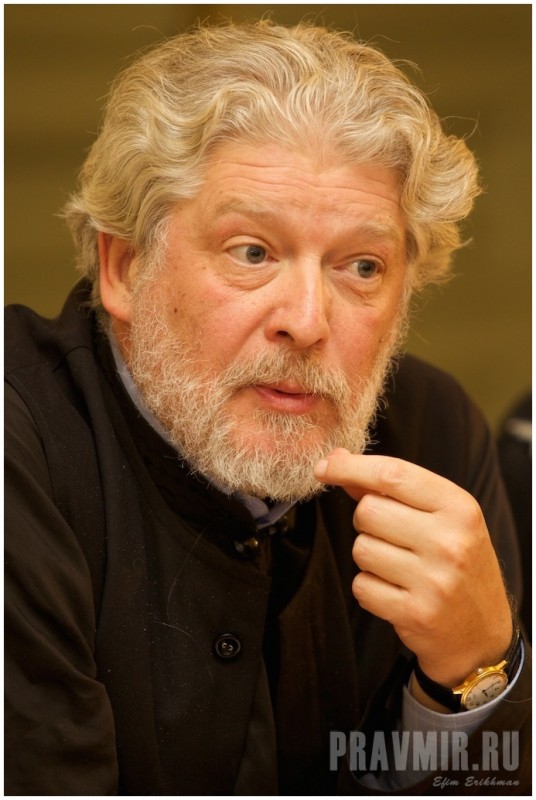 The only thing a person knows for sure about himself is the fact that he is going to die. However, surprisingly, this knowledge does not become the main thought of his life.
The only thing a person knows for sure about himself is the fact that he is going to die. However, surprisingly, this knowledge does not become the main thought of his life.
If we start to remember how often we think about us dying, it will turn out to be not every day, and perhaps, not every week. Even though when we start getting the news on television or the Internet, the first messages we encounter relate to the death of people, victims, catastrophes, wars, firing, bombing, and plane crashes.
A person, instinctively surprised by the news, feels something slightly different: “It is not me; it has not happened to me; I was not there; I am alive. And my close ones are alive, too.”
It is difficult to teach ourselves to remember that we will definitely die and that it can happen to us and to our close ones at any moment. It is a very, very troublesome and practically unbearable thought for a person. One cannot analyze it without faith. Moreover, it requires a serious faith, one that has been confirmed by real experience: the faith in the absence of death, but the existence of Eternal Life, in which there is God.
Unless a person has such experience in his life, he cannot seriously think about death. He can only experience it virtually, merely consider someone’s death on the news or in the movies with multiple gunshots and explosions.
Since a person is incapable of associating death with the beginning, not the end of everything, consequently death is absent in his life; indeed it does not exist. Therefore a person is always completely unprepared for it. When the death of his close ones occurs, he turns out to be completely lost and disarmed. He is unable either to explain it in any way or overcome it.
It is particularly so nowadays in the world that has lost its principles, when relations between the generations and family are formed in a strange and unhealthy way.
When death comes to such a world – which is already not so lively or so full of meaning, love, and feelings – it can completely demoralize a person. Then he distances himself from death so much that he simply does not feel it. In other words, he switches himself off, just like we switch off a refrigerator before going to the countryside.
People are used to turn off their feelings at the time of horrific tragedies. For example, today there is war in Ukraine and in order somehow to accept this reality one has simply to switch oneself off, as if it does not exist. It does exist actually, but a person has turned himself off and does not worry about it. He plans to switch himself on again later, when it all ends.
What if a person cannot “switch off” himself, but realizes strongly that his close ones can also die in a similar way?
Then death starts to torture and eat a person up, like a tumor. He himself, being alive, has been defeated by death so much that he is exhausted, so that he cannot do anything anymore.
I will repeat this: the only person capable of accepting death truly is one who has personal experience of faith, which is true, active, not artificial, not delusive, and not everyday or supernatural. Then the person is able to think about the possibility of his own death as a situation that allows him to look at the world and his close ones in a completely different way.
He can revive his love for them realizing that today – the day of mistakes or, conversely, of repentance, when there is still an opportunity to love here – is the most important day of his life. It is life itself, which is full of meaning.
This is what Metropolitan Anthony of Sourozh was talking about so earnestly while remembering the decease of his mother, who had been ill for a long time. Everyone knew that her death could come at any moment. Vladyka Anthony would say that there was no happier time for him then when he was with his dying mother: every day was full of love, because it could become the last day.
When the Holy Fathers speak about the memory of death, they actually mean love that provides a person with an opportunity to live truly. Life is so fragile and so short. It is given to us so that we could fulfill our potential. The period – ten, twenty, forty, one hundred, or a very short time – is unknown to us.
“One day is enough for a person to experience full happiness,” said the dying Markel, the brother of the future Father Zosima, in The Brothers Karamazov by Dostoevsky.
The reason people are unhappy, bored, and live a meaningless life is the lack of knowledge about death. When it occurs, they either have to switch themselves off, due to incomprehension about how to consider death, or to turn it into a fairly tale, myth, ritual, and some conspiracy, when one can distance oneself by saying stupid and absurd words like: “We are all going to be THERE someday”; “He sees us from there”; “May he rest in peace.” To be totally sure, one could spill a glass of Vodka on the grave of the departed, saying: “May he join us for a drink”; or put a cigarette in his grave, saying: “May he smoke a cigarette together with us”; or put a mobile phone and so on. In other words, it is an imitation of life.
But one can live truly.
Only recently an eleven-year-old girl, who was in a serious condition, from Central Asia was Baptized. Later her mother expressed her wish to meet me and talk. I found out about it the day before yesterday. Today a hospital worker called and stated that the girl had passed away. I did not have a chance to meet her mother before the girl’s passing. I will meet her tomorrow. So it means that everything happens so fast and so close to us, and it is so real, actual and serious.
However, if a person wants to avoid such a situation, he might have a feeling like: “It happens only in movies and it will never concern me. But if it does concern me, I will avoid this thought, hide from it, and distract myself.”
The Absence of Emptiness
Death is often a test of faith. Indeed, it is difficult to accept that a person once lived – “who was so lively and real on the tender land” – and now there is only emptiness instead of him…
I would not agree with you. It cannot be true. The death of a Christian is never emptiness. Indeed it is quite the opposite: it is presence. Actually, true faith begins at the very moment people start feeling death as a presence, rather than emptiness.
Therefore, I cannot say that death is a test of faith. I believe that it is the foundation of faith. Death is one of the key words for Christians. The life of a Christian begins with Baptism in Christ and His death. Death is an open door, the entrance to reality: invisible, but perceptible. It can fill a person, so that he does not need any other words.
Death is always openness. Death is always something that breaks concrete. Another thing is when a person is afraid of it. He might get afraid of this presence and distance himself from it.
Nevertheless, a person disappears from this real and physical world, in which there is the sun, sky, and smells. He is already not here. Although he was there not so long ago and watched the sun and the sky, and could feel the smells…
What do you mean he is not here? For example, a husband goes on a business trip. Does he exist or not? Of course he does, and therefore he will respond in some way or another. For instance he might call. But the possibility of calling from any place on the planet appeared fifteen years ago. What if there is no such possibility? Indeed, is a person unreal if he is not present?
It is hard to accept that a “business trip” is forever.
These words – “forever,” “there is nothing,” and “emptiness” – were created by someone. Why did people start using them in describing life after death? Why did these words appear as concepts that absolutely prove something that a person cannot see? We do not see God and cannot call Him, however. Why then the presence of God in our life does not need any proof? It is the same for the presence of a Guardian Angel.
Otherwise we do not believe in it and live with invented stories that we can accept easily, just because it does not concern us. But when it does concern us, the whole world of paper icons disappears and there is nothing behind it.
However, if there is indeed something, “emptiness” and “failures” have been invented, because God is present in your life.
He does not need to call. I can speak with Him without it. I live in His presence.
It is the same for me being here now, and my wife being three thousand kilometers from me on vacation. She lives in my presence, and I live in her presence as well. Of course, the separation in the visible world is incommensurable with the separation in the spiritual world. It is because this world is incomprehensible, extremely difficult, and frightening. We do not know it well.
What should one do to make this spiritual world real and not to be afraid of it?
It is difficult to say what one should do. What did the Venerable Seraphim of Sarov manage to do so that this world became perceptible and real for him?
Generally speaking, we consider death the same way we believe, and thus it concerns us. Death is a terrible thing, of course. It is an atrocious sword that cuts a person. It is an incredible situation, which overturns everything in this frail world; it was not supposed to exist.
But death has been transformed. God already uses it differently, for the better. This terrible sickness, atrocious death, deceived by God, reaches Life through pain and wound.
If one does not know it, his life will be very boring and pointless.
Questions to God
Can we say that there is God’s will for death or death for the better, or is it “the Lord gave and the Lord has taken away”?
There is no will of God for death, because God did not created death.
Then what about: “But the very hairs on your head are all numbered” (Matthew 10:30)? It means that nothing will happen without the Father’s will. How to accept it?
It is because God has entered death by His own will. Yes, our days are somehow numbered. There is Divine Providence for each one of us. Each of us is under His guidance. Someone’s days have increased, but others’ days have shortened. It is obvious. Someone dies a good death, if we can say it like that. But someone faces a terrible death in an incomprehensible and atrocious way. Only recently some of our parishioners died in a fire, there were a father and his daughter, an eleven-year-old girl.
Why does that happen? Why do small children die, especially in a terrible way?
I do not know. I, too, have many questions for God. We should honestly ask God these questions. It is normal.
A person can say: “the Lord gave and the Lord has taken away,” not because he does not care, but because he really does trust God and understands: if we let God enter our life, our happiness, joy, and sorrow, God will handle everything. It means that a person will cope with everything.
This is a matter of trust. But it does not include a reply to your question so that you could say: “Oh, ok.” God does not have to answer our questions. He always proves a person that He is Love. But how He does so is a mystery, in which He exists.
Then I have a question: how does He prove He is Love if children die and wars occur and so forth?
This is what I am talking about. We think that God must prove and always excuse Himself for the misfortunes that occur in the world. Meanwhile, He does prove it by His personal presence in every situation that a person faces. It is because wherever a person is, God is with him.
It was not God Who created evil, such as wars, in the world.
The Kingdom of the Wealthy
We are all given some talents or other: we draw pictures, build houses, and so on, and we find pleasure in pieces of art and books. Will it all become unnecessary and pointless?
I have no idea. I just do not think that the Kingdom of Heaven is the Kingdom of people deprived of something. I believe that there is fullness in everything there. We are unaware of the way it is fulfilled.
The most important thing is that we learn to love our close ones and God here. But later, will our earthly attachments be preserved or only love for God will remain?
It is hardly possible, because the Commandment about love for God and a person has been given to us as an eternal Commandment. If God loves a person, how can we not love Him?
Love is a hard thing. Even loving couples, that got married because of love and gave birth to children for the same reason, sometimes suddenly have doubts about their feelings for each another. It is difficult to love your own children. Especially when they become adults. Actually it is very hard to love anyone, if it is not a puppy.
Moreover, it is even more difficult to love God. He does not give us direct answers to our questions. He is hard to comprehend. He leaves you and you become afraid, when you do not feel His presence. He cannot be bribed and it is hard to learn to speak with Him. It is much easier not to love Him. It is easier to be obedient to Him, to pay tribute, money, and tax in the form of fulfilling your duty. Therefore, learning to love God is quite a difficult task.
What happens with the Sacrament of Marriage after death? A man and a woman unite their lives and become “one flesh” (Genesis 2:24). But what will happen THERE: will they meet and be together in a unity?
An integral unit does not mean two people living with two heads in one body. Obviously, it means a different thing. The Sacrament of Marriage, just as the Mystery of Baptism, stays with us forever.
I am convinced that the Mystery of the Eucharist – the main Mystery – will continue in the Kingdom of Heaven forever and ever, too, like joining the only source of life of each of us, because the Lord has promised to give us a new “vine in the Kingdom of God” (Mark 14:25).
Likewise, those who have lived in an honest marriage all their lives on earth, will definitely preserve this marriage as wreaths, as a victory, as joy and unity in love. There is another kind of marriage: martyrdom. Martyred women are called “brides of Christ.” They enter into their heavenly marriage with Christ for the sake of the Kingdom of Heaven.
The Old Testament’s idea of marriage is, first of all, child labor: the continuation of a generation. It does not include the meaning that the Lord said in Paradise: “They shall be one flesh” (Genesis 2:24). Therefore polygamous marriages and levirate could exist in the Old Testament, in which the prime goal was to continue human generation, no matter what. This kind of marriage will certainly not take place there.
One of the spouses dies and the Church blesses the other to enter the Sacrament of Marriage for the second time. What will be with the unity in the Kingdom of Heaven?
I do not know for sure and can only make assumptions. It is clear that no one will “share” one husband or wife in the Kingdom of Heaven, in our earthly understanding.
Marriage exists not merely as a separation of a couple from the other part of the world. The concept of “marriage” also includes a united human family. It is love that unites, not separates. Marriage is not jealousy nor ownership, but a gift to increase love.
I believe, therefore, that this problem will be somehow solved in the Kingdom of Heaven. Indeed, a marriage in the Kingdom of Heaven means primarily a deep knowledge of each other, absolute openness with one another, and an angelic way of living, like purity.
When people destroyed marriage by themselves here on earth, it meant one thing: whatever has been destroyed cannot be restored. If an honest widowhood is followed by the same honest and righteous family, I doubt that it will be a barrier to the unity of love in the Kingdom of Heaven: of all those who have achieved it through a righteous life in God.
Cowardly Officers
We are afraid of death also because we do not live as we should…
It is because we do not treat God with love. This fear is born of a feeling of one’s deep unworthiness, not a feeling of repentance, which the Holy Fathers had: they would say: “I am unworthy and my place is in hell.”
Our disbelief and fear are born only of the idea that we have not gained enough points. This is a completely different thing, not a relationship of love. Here it means that I have to gain points in the eyes of my supervisor, to manage to tick the right items in all tests, and to answer all examination questions correctly on the Day of Judgment.
However, such fears of not getting into the Kingdom of Heaven and of death have no connection with Christianity in this respect. Therefore questions arise like: “What will happen to me in Paradise? Will I have this or that there?” and so on. These are the questions of officers or workers of some departments, who try their best to further their career. What does the Kingdom of Heaven have to do with all that?
We are afraid of death, because we do not know Christ well and do not love Him. It is not because we feel that we are bad Christians or are afraid of upsetting Him. People can consider themselves bad Christians only when they love God truly. When you are close to light, you understand everything. But since you are technically standing in some kind of basement throughout your entire life, it is just cowardice, not the fear of God.
Cowardice is a sin. A cowardly person is a sinful person. One who is afraid of God is not a coward, but a brave person. He is ready for a good deed for the sake of the fear of God. A coward is not capable of anything, but only betrayal.
A person looks at the future with hope and forms certain plans. Then, everything is suddenly destroyed by a close one’s passing. Sometimes all relatives and close ones die at the same time. It seems there is no point in continuation of life… Indeed, how one can continue living?
It is only an appearance that there is no point in it. More often a death of a close one, which was felt in a deep and serious way, is the beginning of a new life. Gradually a person learns to live again. It is very hard and intensely painful for an ordinary person, especially when it is related to death of children.
This knowledge and pain from loss stays the entire life, which will be completely different from now on. However, it does not mean it will be absolutely pointless and empty.
You will not find special strength for this purpose. There is no such place where you can find plenty of it. There are no pills. This is life with God, Whom you start to know and love and not understanding Whom you start to understand.
Trials of a Soul and Prayer for Non-Baptized
What happens with a soul when it leaves the body? It immediately reminds me of “The Trials of St. Theodora”…
Answer: “The Trials of St. Theodora” is quite a recent piece of work in church tradition and is not a dogmatic teaching of the Church. It is a certain legend that we can accept or not. It appeared around the time when a teaching of Purgatory came into view in the Catholic Church – which is, by the way, not a dogmatic teaching, either. Purgatory is one of the forms of a “juristic” understanding of what can happen with a soul before the Second Coming.
But the thing is that everything connected with the existence of a soul after death is unknown. We only know that these souls are alive and they are in the presence of God. We know that there is a connection with these souls, because the Mother of God – as the first human who entered the Heavens – testifies to the fact that all live unto God.
We know that our saints, whom we address as we address the living, have not yet been to the Day of Judgment. They might never have to go through this judgment, because he that hears My word, and believes on Him that sent Me, has everlasting life, and shall not come into condemnation; but is passed from death unto life (John 5:24).
However, since the Resurrection of all people has not occurred yet, no saint – neither St. Nicholas, nor St. Spyridon, nor the Great-Martyr George – and no one from the great saints lives in the Kingdom of Heaven to the full extent. It is not open for us yet. We can only anticipate it. Therefore, we also have a non-dogmatic teaching of the Church that there is a certain preceding period of the Joys of Paradise and of the torments of the damned.
We are aware of the fact that the souls of the dead are in the presence of God. While we are praying for the departed, our Church gives a person an opportunity for a real and lively prayerful conversation, including through the Eucharist.
We know about the Resurrection of each and every soul into the body. This is our dogma.
Meanwhile, what the soul of the dead experiences and what condition it is in is in God’s hands. We do not know how souls react to our prayers and how exactly God’s grace lies on them.
No one can share his personal experience to another and note: “It has happened in this way and the same will happen to everybody.” Therefore, I would not trust or, at least, be very careful about various stories about “life after death,” “tunnels,” and resurrection after a clinical death and so forth. It is because all of these experiences of people’s souls occur in oblivion. The symbols, which a person is able to recollect afterwards, I think can hardly have any connection to reality.
The possibility of church prayer for the dead supports their relatives. But what should we do when the departed were non-Baptized? Where should their relatives come for consolation?
Several major catastrophes have taken place recently, such as the tragedy in the Moscow subway and the Boeing plane crash… Most of the names of the victims’ list of the Moscow subway tragedy are Central Asian. Moreover, memorial services for the dead in the Moscow subway tragedy and the plane crash took place at all Moscow churches.
The Patriarch, and the entire Church together with him, prays for people who have suffered in such major tragedies or in mass mortality.
However, if an ordinary person writes the name of a non-Baptized person, no church worker will accept such a note from him.
The question related to the number and certain prayers that the Church is allowed to pray for the non-Baptized should be directed to the Service Committee, I believe. If it was a sudden death, we do not know what was happening in the person’s soul. Perhaps he was going to be Baptized… What about children who were not Baptized?!
I am of the opinion that it is crucial to specify clearly its meaning: the Church should show where and how prayer for the non-Baptized takes place. We pray for the authorities and the forces during every Liturgy. But a great number of people, who are members of the government of our country and its forces, are people of another faith or even non-believers. During every litany people would pray for, say, the Belgian king at some Russian Orthodox Church in Belgium. And people pray for the Queen in the Netherlands, and so on.
If the Church somehow offers its prayers for the non-Baptized on certain occasions, a clear definition is essential for the laity. For example, today a Service of Intercession to the Holy Theotokos takes place in front of Her “Seeking Out of the Lost” Icon, and you have many relatives who have gone astray or are non-Baptized. How can you not pray to the Mother of God for them today, why not include their names in the list for the service?
Or when a general memorial service for the dead is held, why not remember all the departed? We do pray for people who died in wars and who laid down their lives for the Motherland. There are millions of them. How many of them were non-Baptized? But we pray for all. We do not pray for only those who were Baptized, for “our members,” so that the souls of others can wait outside.
When we pray for all of the departed, it means that we involuntarily pray to God for the terrible people in the history of humanity: for example, for Hitler or Stalin. It is not in human nature. On the other hand, one cannot really say: “Lord have mercy on all, except…”
Yes, it does mean that. It is clear that we do not want to do it by the human mind. But if we pray generally, technically, our prayer may include both Hitler and Stalin. We should not think about it particularly. The Lord will handle it. The chance of salvation has been given to everyone: to the first, the second, and the third. Take Dostoevsky’s “Onion” parable, for example.
What happens next: there are such things that will never be open to us. In this case, I would recommend those who ask themselves questions about life in the Kingdom of Heaven, The Great Divorce by C.S. Lewis. I believe that Lewis raised all these questions in such a light and smart way in that book and managed to reply to all of them by his Christian intuition.
You said that church prayer helps relatives communicate with the dead. What about dreams? One wants to believe so much that if they come in a dream it means they can “connect” with us.
We want our relatives to communicate with us through dreams. Perhaps we consider it to be a certain transmission unit: we fall asleep and it starts to “work.” But this is nonsense.
But the “communication” exists. However, dreams have nothing to do with it. This communication exists to the extent of our faith, the extent of our connection with God, and the extent of our joining Christ. And, of course, to the extent of our deep love for those who leave us.
Interview conducted by Oksana Golovko
Translated from the Russian by Maria Trushanina.












